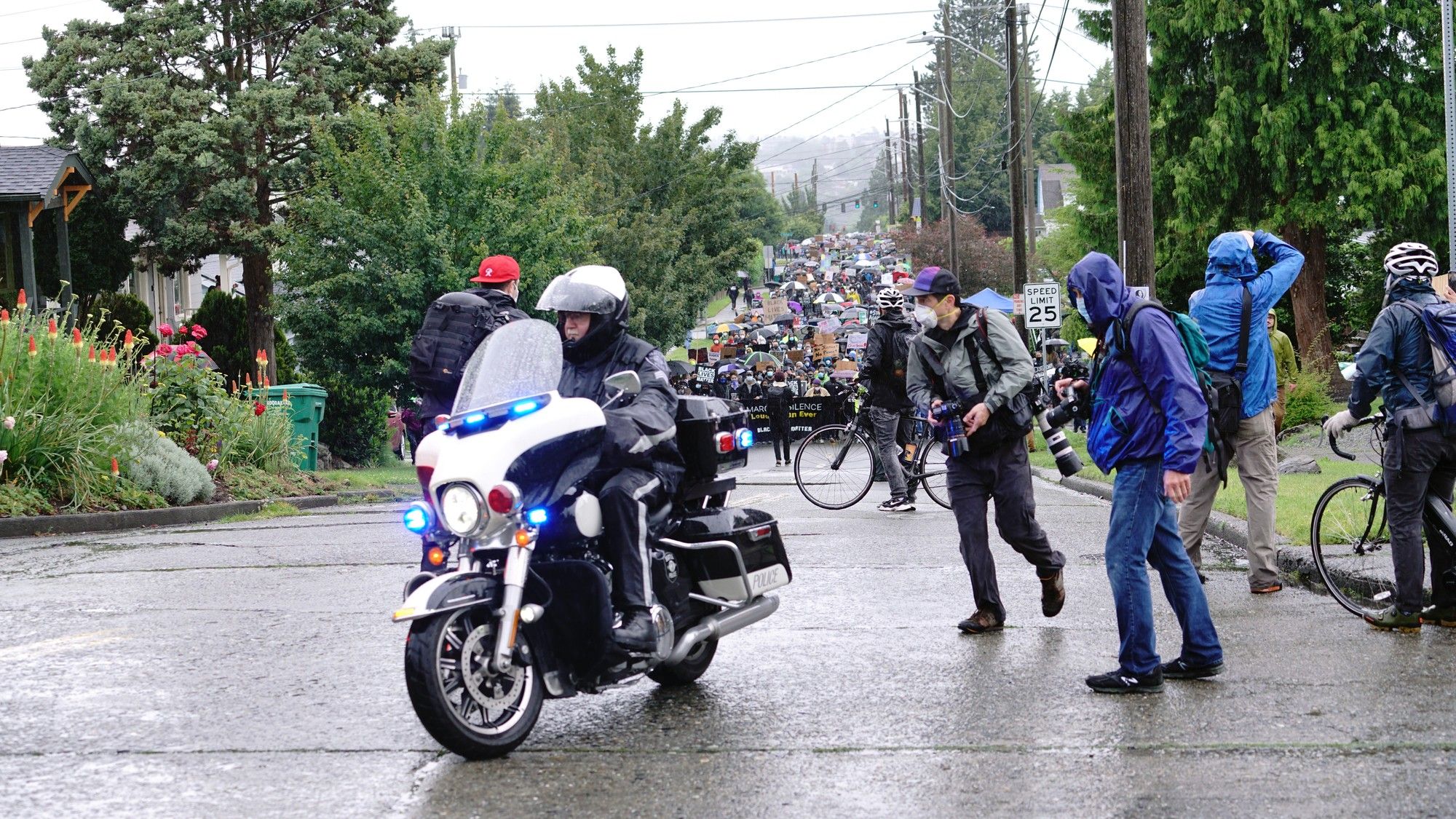Top Class Actions’s website and social media posts use affiliate links. If you make a purchase using such links, we may receive a commission, but it will not result in any additional charges to you. Please review our Affiliate Link Disclosure for more information.
Business owners have reportedly overcome a motion to dismiss their proposed class action lawsuit alleging the city’s failure to regulate Seattle CHOP Zone protests violated their rights.
The city of Seattle attempted a quick exit from the lawsuit by filing a motion to dismiss the business owners’ claims. However, a federal judge refused to toss the claims.
“Plaintiffs plausibly allege that the City’s actions — encouraging CHOP participants to wall off the area and agreeing to a ‘no response’ zone within and near CHOP’s borders — foreseeably placed Plaintiffs in a worse position,” U.S. District Court Judge Thomas S. Zilly wrote in a recently issued order.
Seattle Chop Zone Class Action Lawsuit Claims
The CHOP, the Capitol Hill Organized Protest or Capitol Hill Occupying Protest, Zone was sparked by summer 2020 protests against police brutality and racial inequalities. Protesters and other individuals reportedly constructed and occupied an “autonomous zone” meant to be free from policing. CHOP, as it was eventually called, was in the areas around Cal Anderson Park and the East Precinct of the Seattle Police Department.
The protest occurred over several weeks before the city reportedly moved to clear the area in July, according to Capitol Hill Seattle. In addition to concerns about violence, business owners claimed the city abdicated its responsibility to protect their property from the disruption of the protest.
Indeed, the Seattle CHOP Zone class action lawsuit alleged that city officials gave protesters a “de facto stamp of approval” to illegal and destructive behavior. The business owners say they were deprived of city services as a result of the occupation, including police, emergency and even garbage services. Additionally, the lead plaintiffs say their businesses suffered as customers did not feel safe coming into the area and deliveries were unable to be made.
 Judge Upholds Most Class Action Claims
Judge Upholds Most Class Action Claims
The class action lawsuit made claims that the city of Seattle violated procedural due process, substantive due process, equal protection laws and engaged in unlawful taking. The city of Seattle fought to dismiss the claims, arguing it was not responsible for the acts of CHOP Zone protesters.
For the most part, Judge Zilly sided with the business owners, upholding three of their four claims. The class action lawsuit alleged the city’s “support” of protesters, including providing medical equipment and allowing them to erect barriers, deprived the plaintiffs and other Class Members of their due-process rights.
“Plaintiffs plausibly allege that they had a protected property interest in the full use and enjoyment of their property and that the City’s affirmative actions in support of CHOP caused Plaintiffs to suffer a temporary deprivation of those interests,” the judge concluded.
Similarly, Judge Zilly ruled the plaintiffs had established that the city had demonstrated an indifference to the harm area businesses would suffer as a result of supporting CHOP.
“Plaintiffs plausibly allege that the City’s actions — encouraging CHOP participants to wall off the area and agreeing to a ‘no response’ zone within and near CHOP’s borders — foreseeably placed Plaintiffs in a worse position than they would have been in absent any City intervention whatsoever,” the order pointed out. “Their allegations are also sufficient to show that the City acted with deliberate indifference to that danger.”
However, the judge did trim the plaintiffs’ claim that they were denied equal protection under the law.
“Absent any allegations indicating that the City intentionally treated Plaintiffs differently than similarly situated individuals, and without any rational basis for doing so, the Court concludes that Plaintiffs did not plead sufficient facts to support their equal protection claim,” the judge concluded. However, Judge Zilly dismissed the claim without prejudice, and the plaintiffs will have the opportunity to amend their complaint.
Possible Class Action Trial Dates
Capitol Hill Seattle reports that in refusing to dismiss the class action lawsuit, Judge Zilly set up the possibility for a trial in 2022.
In addition, if the class action lawsuit is certified, other area businesses may be able to join the litigation.
“I think the biggest question there is how much, in the end, is this going to cost the city?” one commentator told local news source KIRO 7. “If it’s just the plaintiffs right now, then it’s probably in the millions. If it turns into a class action lawsuit, it could be in the tens of millions.”
What do you think of the Seattle CHOP Zone business owners’ claims? Tell us in the comment section below.
The lead plaintiffs are represented by Patty A. Eakes and Angelo J. Calfo of Calfo Eakes LLP.
The CHOP Businesses Class Action Lawsuit is Hunters Capital LLC, et al. v. City of Seattle, Case No. 2:20-cv-00983, in the U.S. District Court for the Western District of Washington.
Read About More Class Action Lawsuits & Class Action Settlements:


 Judge Upholds Most Class Action Claims
Judge Upholds Most Class Action Claims













One thought on Judge Rules Seattle Business’ CHOP Zone Protest Lawsuit Can Proceed
add me